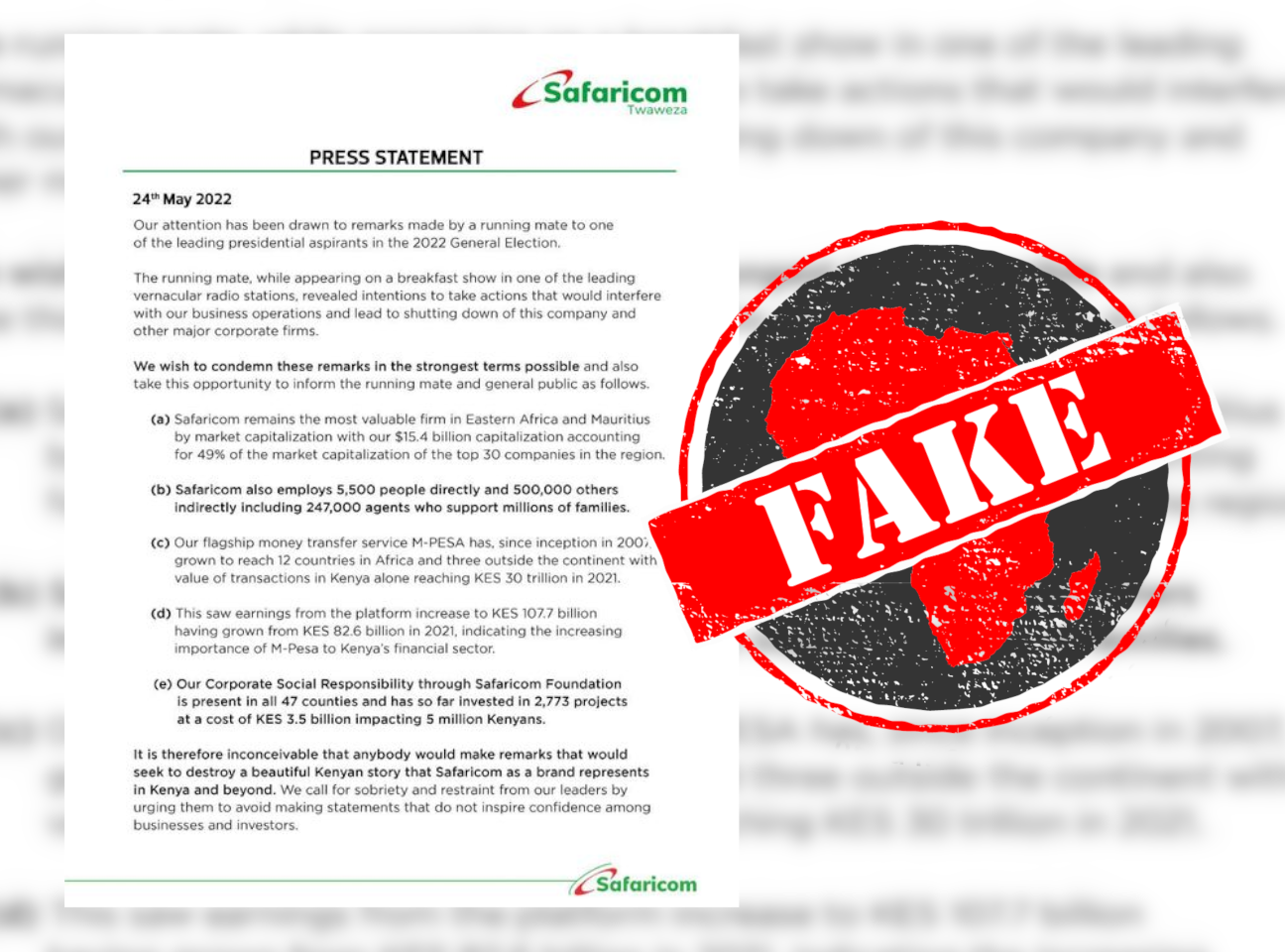An image of a “press statement” attributed to Safaricom, a Kenyan telecoms company, was posted on Facebook on 25 May 2022.
“Our attention has been drawn to remarks made by a running mate to one of the leading presidential aspirants in the 2022 General Election,” it begins.
“The running mate, while appearing on a breakfast show in one of the leading vernacular radio stations, revealed intentions to take actions that would interfere with our business operations and lead to shutting down of this company and other major corporate firms.”
It then goes on to list Safaricom’s contributions to Kenya’s economy.
The statement is dated 24 March 2022, and has the logo of Safaricom. It uses a font similar to the one used in the telco’s publications.
The statement does not mention the name of the running mate. But most of the users who posted it on Facebook, here, here, here, here, here, here, here, and here, linked it to Rigathi Gachagua, the presidential running mate of Kenyan deputy president William Ruto. Gachagua is MP for the Mathira constituency in the national assembly.
Kenya is set to hold elections in August.
On 24 May, Gachagua spoke to Inooro FM, a radio station broadcasted in the Kikuyu language. He expressed dissatisfaction with what he said were unsustainable bailouts of large companies in Kenya, such as the loss-making Kenya Airways. He said bailout money should instead be given to small businesses.
In his remarks, Gachagua also mentioned Safaricom as an example of these big companies.
But did Safaricom really issue a press release condemning Gachagua’s remarks? We checked.

Fake statement
In a look through Safaricom’s website we found press releases issued by the company. We did not find the one criticising Gachagua.
The Kenyan telco stamped the statement “FAKE”, and posted the stamped image on Twitter and Facebook.
“Please note that all our official communication is shared through our verified social media channels,” Safaricom said.
Republish our content for free
For publishers: what to do if your post is rated false
A fact-checker has rated your Facebook or Instagram post as “false”, “altered”, “partly false” or “missing context”. This could have serious consequences. What do you do?
Click on our guide for the steps you should follow.
Publishers guideAfrica Check teams up with Facebook
Africa Check is a partner in Meta's third-party fact-checking programme to help stop the spread of false information on social media.
The content we rate as “false” will be downgraded on Facebook and Instagram. This means fewer people will see it.
You can also help identify false information on Facebook. This guide explains how.


Add new comment